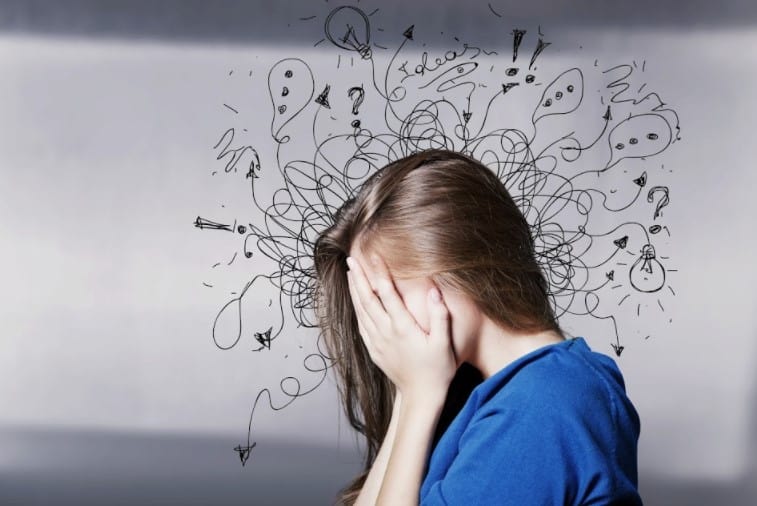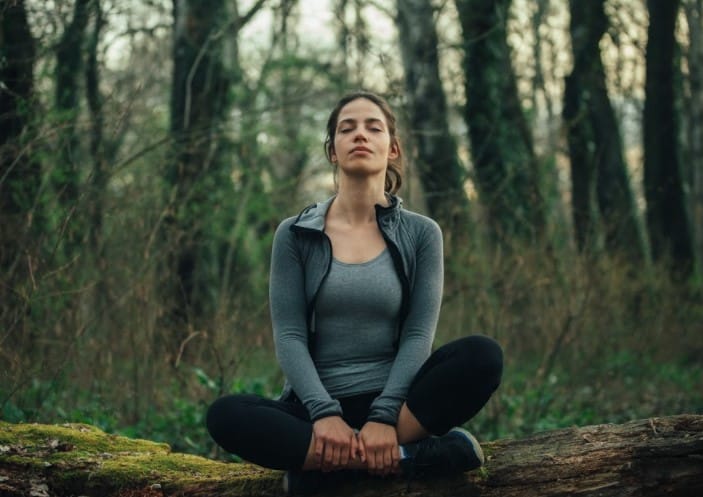Anxiety can make life hard for anyone and excessive anxious states can lead to difficulty relaxing, prolonged negative thinking and a decreased ability in regulating negative emotions.
Anxiety also makes it harder for the parts of the brain that are in charge of memory, learning, and other cognitive functions that regulate physiological and emotional states for a person to calm down physically and mentally. That’s because the emotion center of the human brain, known as the amygdala, becomes overactive.
Don’t lose hope if you’re suffering from anxiety. Even simple habits go a long way in improving how you feel.
Everyone has feelings of stress, tension, nervousness, and anxiety from time to time, so you’re not the only one; you’re not alone in this battle. Read on below for the habits that may help you with your anxiety.
Spending Time With Family And Friends
Finding time to connect with other people helps. Even only hanging out with those you feel close to can do wonders. Organized activities are even better. It deepens your bonds with others, making you feel secure and supported.
You also become less upset about things and happier because of all the sharing and fun that go with spending time with your family and friends. You can cope better when you talk with someone who not only listens but also cares.
Letting them know about something that makes you feel nervous or worried will remind you that you’re not alone because everyone has these feelings sometimes.
Connecting With Nature
It’s not only about connections with other human beings, connecting with nature can also help. Anxiety creates a rigid mindset, so a person may come to the conclusion that nothing can change.
A change in scenery could be just the trick. Go out for a walk rather than sitting at home. Cognitive flexibility shifts gear by doing something different. It’s like stretching before engaging in a workout.
Reading Resources About Anxiety
Learning more about anxiety is essential in fighting it. However, many people fail to realize that their fear and anxiety won’t go away until they start learning. They’ve been waiting for the right moment to conquer their anxiety.
Some think that they can’t tackle their anxiety unless their symptoms become less strong. Others make a busy schedule an excuse.
The problem with this mindset is that they’re actually feeding their feelings of loss of control and anxiety, because waiting for something else to happen before making the necessary changes is like giving away the power over one’s self.
If you’re like those people who wait a lifetime before facing their anxiety, then keep in mind that if there’s a perfect time for you to start feeling better, it’s NOW.
All you need is to seize the moment by taking the first step. You don’t need to be energetic, confident, or feel symptom-free to begin.
People who can control their tendency to feel anxious about things are those who read about anxiety. The good news is that there are many resources available.
Today, you have courses and books that can help. You can even join regular sessions of support groups or arrange a regular schedule with counselors. Click here to learn more about anxiety counseling.
Engaging In Diaphragmatic Breathing From Time To Time
Another habit that helps fight anxiety is practicing diaphragmatic breathing. It also helps during a panic attack because it makes you relax.
Instead of the chest going up and down, the belly expands in and out when you engage in this breathing type. Diaphragmatic breathing works best when an individual inhales for four seconds and exhales for five.
Coloring
Worries temporarily fade away when engaging in certain hobbies, such as coloring. The activity makes you feel more relaxed, happier, mentally clear, and calmer.
Considering the fact that all hobbies related to arts and crafts have the power to bring a person’s brain to focus similarly to meditation, it isn’t totally shocking.
Doing Tai Chi Or Yoga Every Day
Many people think that relaxing involves spending time chilling out in front of the computer or television. These things could actually make someone more tense, depending on what he or she watches or does.
It’s also the case for tobacco, drugs, and alcohol. These substances provide a false, temporary state of relaxation to the mind and body. These things may seem to relieve stress or anxiety, but they aren’t true relaxation.
Relaxation practices like tai chi or yoga are what the body really needs. They have a physical effect on a person’s mind. Both routines involve deep breathing. Everyone knows that deep breathing helps make us feel relaxed by sending a message to the brain to allow the body to loosen up.
Watching Comedy Shows
We’ve mentioned that spending time in front of the TV isn’t always true relaxation. However, it kind of depends on what you’re watching.
Shows that make you happy or laugh are the best examples of what’s considered ‘light TV’. A good laugh helps get the mind off feelings of anxiety. Watching a funny sitcom is a great idea.
Even seeing your favorite stand-up comedians perform live is still a self-soothing activity. Watching comedy shows on TV can be very effective in fighting anxiety, especially when you consume relaxing drinks at the same time.
Drinking Chamomile Tea Regularly
Chamomile tea should be on the top of your list when speaking of relaxing drinks. Chamomile isn’t only relaxing, but it can also decrease anxiety significantly, according to several clinical and laboratory researches.
It can even help fight depression. Place four bags of chamomile tea in a pot with boiling water, then drink up slowly after letting them soak for at least five minutes.
Limiting Caffeine
A drink that pretty much does the opposite of chamomile is coffee. Even foods with caffeine can actually make someone more anxious.
That’s because it’s a central nervous system stimulant. By stimulating your fight-or-flight response, consuming too much coffee can exacerbate panic attacks and anxiety. It can even trigger anxiety attacks.
One can still consume caffeine but it should be at a reduced level. Limiting caffeine reduces the anxiety level you experience daily.
It’s essential to note that even some over-the-counter medications like Midol or Excedrin may have caffeine in them. Soda and chocolate may also contain some. Therefore, be mindful of your diet and the medication you take.
Chewing Gum
Yes, chewing gum is a hobby that helps with anxiety. We’re not kidding here.
As you probably already know, dental experts recommend chewing sugarless gum every day after a meal to reduce plaque. Different studies also now show that it may also help reduce anxiety.
The exact reason why chewing gum helps is still not entirely understood. However, scientists believe that it’s probably because of the lower cortisol levels that result from the increased blood flow to the brain that the act of chewing causes.
Replacing “Victim” Words With “Power” Language
The words a person uses can have a significant effect on how he or she feels. The reason why most anxiety sufferers think that they’re losing control or their self-esteem is plummeting is the use of negative words.
Experts refer to these negative words as “victim” words. Should, never, always, and can’t are some of their examples.
Victim words create a negative self-fulfilling prophecy. That’s because they perpetuate anxiety and fear, resulting in anxious thoughts and even physical symptoms.
Using “power” language can help defeat anxiety caused by negative words. These are words that promote feelings of personal power and self-worth.
Instead of saying that you shouldn’t be late for dinner, tell yourself that you may be late, but it’s ok. Also, say that you can control your anxiety because you’re learning the skills to conquer it instead of telling yourself that you can’t control it.
Getting Enough Sleep And Nourishment
Getting the right amount of sleep (not too little or too much) for your needs will make your mind and body feel peaceful. It will also make them strong enough to handle the ups and downs of life.
Aside from sleeping well, note that eating well also helps with anxiety. Many people mistakenly choose the short bursts that one can get from too much caffeine or sugar. However, it’s best to go for long-term energy that whole grains, lean proteins, vegetables, and fruits bring.
Regular Exercise
Exercise can really do wonders for your mind and body. Many studies will support this claim. Regular exercise releases the natural painkilling chemicals known as endorphins in the brain, improving your sleep and reducing stress.
Workouts also help the brain better cope with anxiety and stress. You can improve your mood by getting your body moving. Even 15 minutes of dancing to the beats of your favorite tracks at home would be enough.
Final Thoughts
The habits discussed here can help you avoid feeling anxious or deal with anxiety when it hits. You don’t have to practice them all at the same time. Take things slowly by choosing one or two that you think will work for you at the moment.
You can incorporate all of those habits into your lifestyle slowly over time. By doing so, you could find the strength to better cope with anxiety and have the skills to even stop anxious feelings before they take over.



